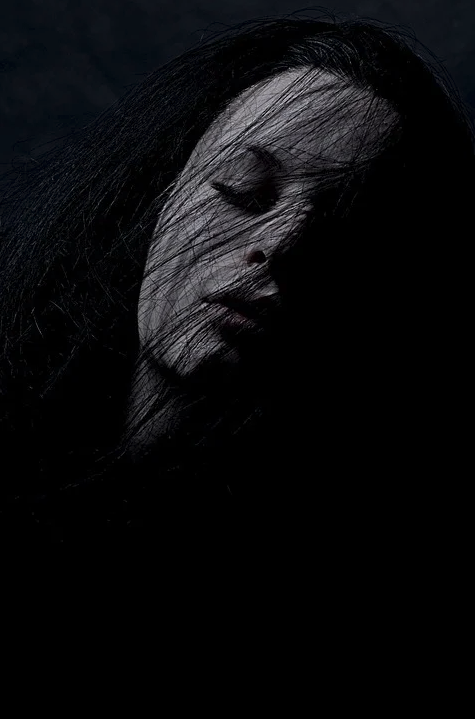There have been many devastating effects of COVID-19. One that can easily go unnoticed is depression.

In fact, almost one third of adults have experienced symptoms of depression since this last spring as a result of the pandemic – according to a recent study led by Boston University researchers.
Much like physical ailments such as heart disease or diabetes – we often rely on screenings to see if we need to seek further medical care. Depression is no different and affects all areas of a person’s life who is suffering. And thus it requires a screening, as well!
 We sometimes hear people reduce the severity of this illness, thinking it is a character flaw. “Why don’t you just go exercise?” they say.
We sometimes hear people reduce the severity of this illness, thinking it is a character flaw. “Why don’t you just go exercise?” they say.
But it’s not that simple.
So please don’t get drawn into these criticisms! You know your body best, and this is not some “illusion”. So please don’t silently suffer, depression is a real and very treatable disorder.
Don’t feel you need to wait through the pain and it will get better on its own. Remember sometimes we all need help to release ourselves from this daily suffering. And it’s a daily event, and it goes in waves, don’t you think?
If left untreated, depression can dominate a person’s life and livelihood.
Even worse, some people can feel the symptoms are a normal part of life, which simply is not true. Remember when you were a kid? Your biggest worry was what movie you wanted to watch or what to do after school. What a light and incredible feeling, right?
You can get there again. Just because you are an adult doesn’t mean your life needs to be heavy and painful. You may be experiencing depression. And a lot of people won’t even discover this until they are on the verge of their deathbed! Then they say, “I guess I was depressed all those years. And that’s why I acted the way I was.”
Yes we know people experience tremendous suffering, but depression can make these painful situational experiences heightened and “more painful.”
Here at Sunflower Counseling, we often reflect on Victor Frankl – the holocaust survivor who wrote the book “Man’s Search for Meaning.” In the concentration camps, he noticed that the people who continued to find hope and meaning, that the people who could laugh – could overcome the terrible things they experienced.
And unfortunately, when people lost that hope and glimmer of joy and life they could then not survive.
This happens in our society as well. We have known the most incredibly wonderful and “put together” people who have completed suicide. It’s so scary to really see the effects of depression and loss of hope.
Only ⅓ of people suffering from depression actually seek professional help.
This is startling. There is often shame associated with seeking help. Sometimes people don’t want to be vulnerable or appear weak.
We often have individuals come seek counseling for alcoholism, drug use, and other addictive substances. The root of most of these people’s use of substances are depressive symptoms. They are trying to cope with their depression and seek dopamine by using substances rather than treating the depression they are experiencing.
But, when many people are able to receive help from a mental health counselor – then, they can change their life satisfaction. They can overcome their addictive behaviors.
Symptoms of depression
Here are some of the symptoms of depression and when it is a good idea to seek help. The first is a persistent or “sad, anxious, or empty” mood. Of course we all have a bad day sometimes or situational stress and distress. The difference between a “normal” reaction and a reaction from someone experiencing depression is how they bounce back.
Someone who does not have depression may feel bad for that day and call a friend or do something enjoyable to alleviate the pain. Then, they are able to feel better as a result. They may experience guilt around the situation, but not attribute it to themselves as a character flaw or feel shame.
However, someone with depression may feel a persistent weight day after day, week after week, month after month. A marked difference is displeasure in normally enjoyable activities. And then it doesn’t go away. Or it comes and goes in waves.
Another big sign is differences in appetite, body weight, and energy. A person experiencing depression may notice they have a dramatic weight loss, or are turning to food for emotional regulation.

Mood differences are also a big sign. A person’s partner or roommate may share with the person how irritable they have been. Or they might ask if something is wrong. This may be difficult to notice in yourself, but somehow things are more irritating than normal. This is also a sign to get help.
Another sign is difficulty making decisions. Even the smallest choice of where to go for lunch may seem overwhelming and unfaceable. People who are depressed often cannot even brush their teeth! This is because they cannot gather up the internal strength to brush their teeth and so they say to themselves, “We’ll brush them in the morning.” So notice if you’re not brushing your teeth, because this is one sign.
The biggest indicator is thoughts of suicide or death. A person with depressive symptoms may want to make the feeling go away. They may want to disappear, or not feel anything anymore. These are all signs. Sometimes it comes in subtly and can get worse. They may have a fleeing thought of death being a relief and as the symptoms persist and get worse, they may actively plan their death.
Again, this is very serious. Please don’t wait to get help. Depression again is treatable and manageable.

You can feel joy again and come back to a place of control. You can experience happiness again, or at least a better outlook.
Our counselors have been highly trained and implement evidence-based techniques to treat depression. People who come to seek help have shared with our therapists how they are feeling better and getting their lives back.
You can too!
